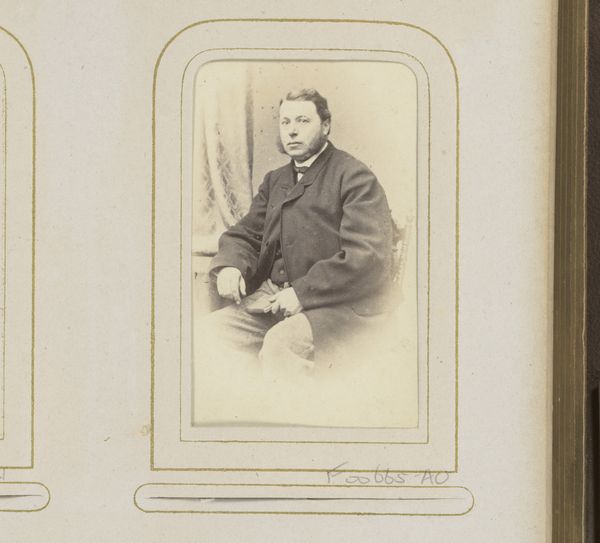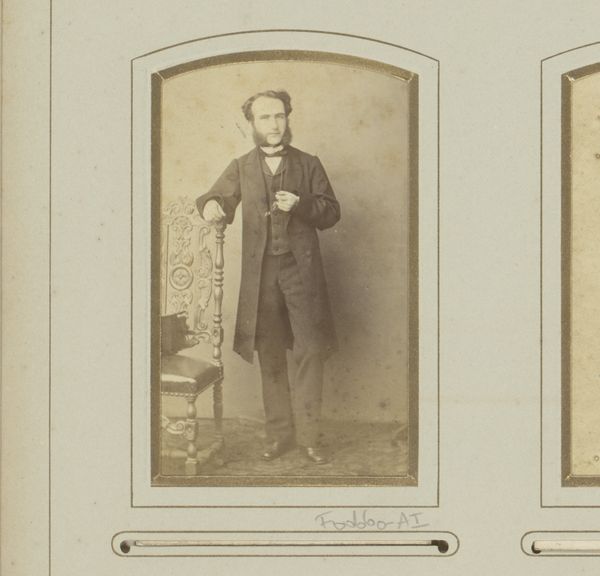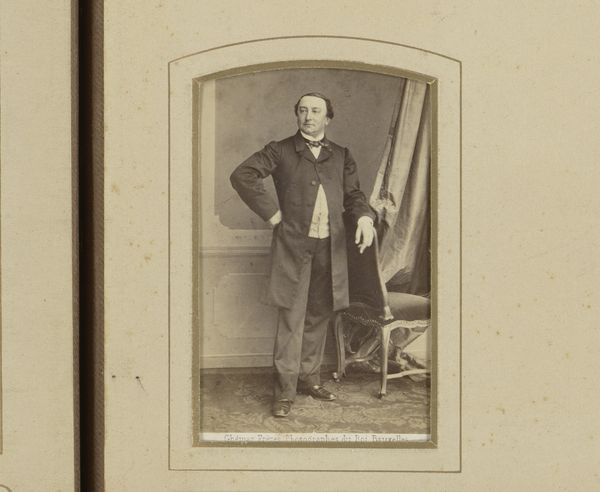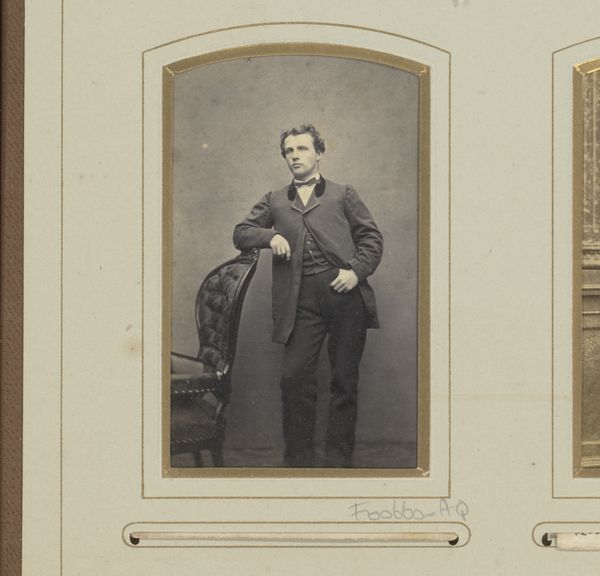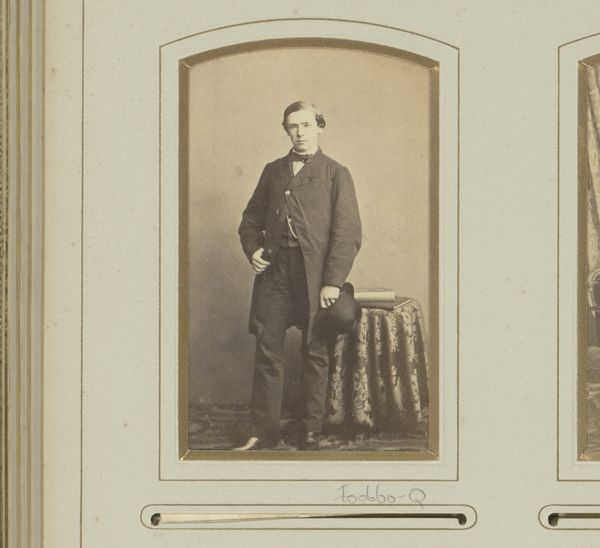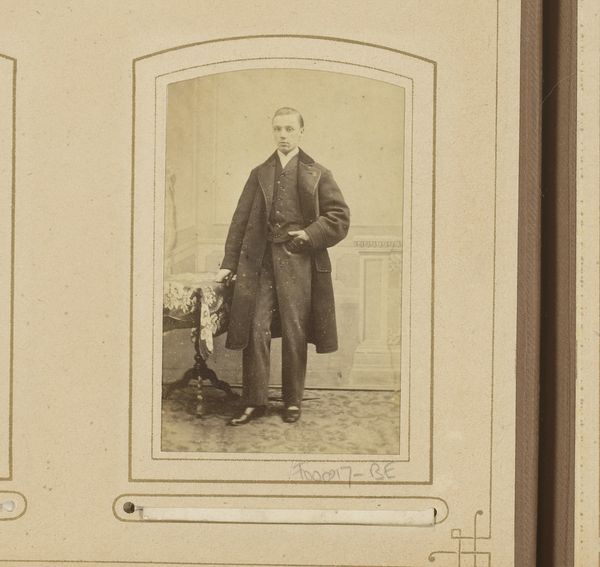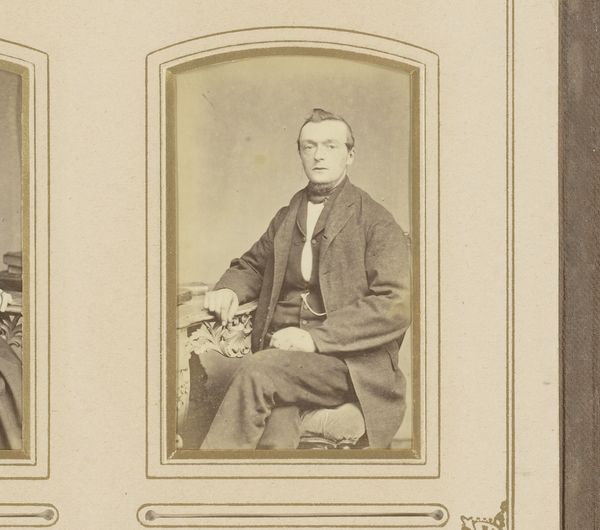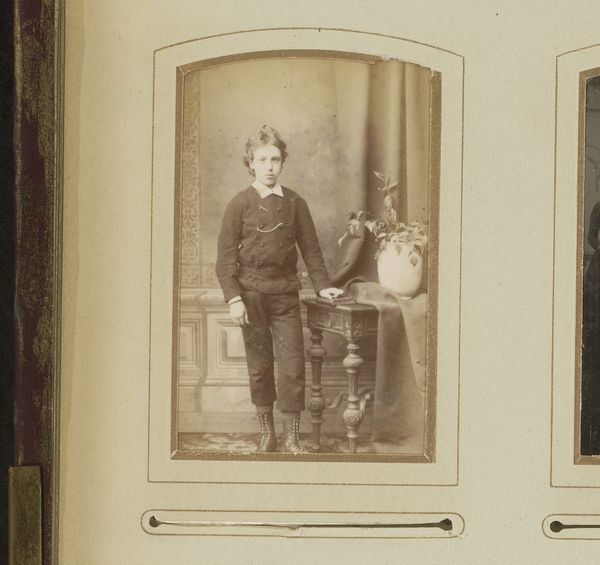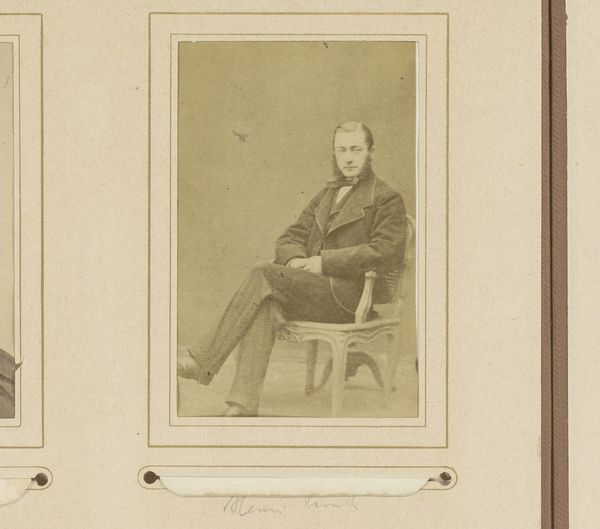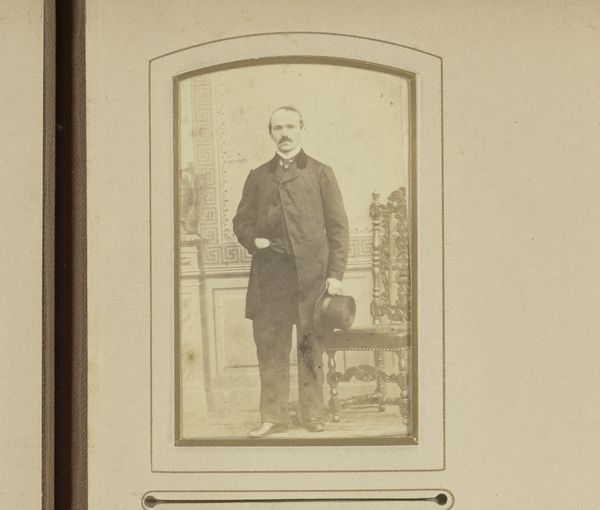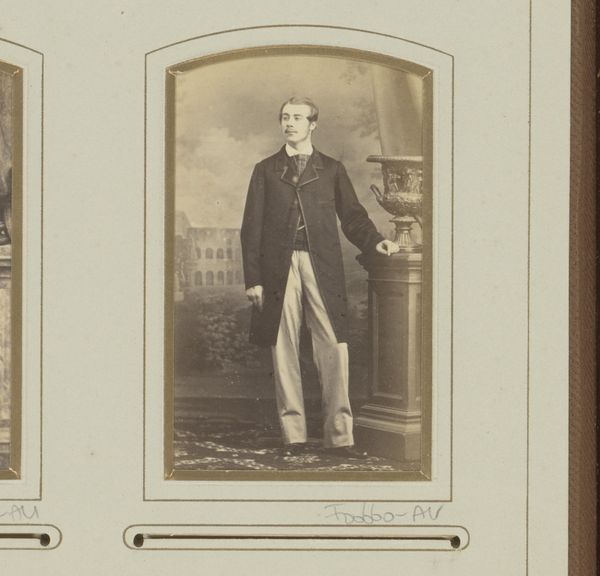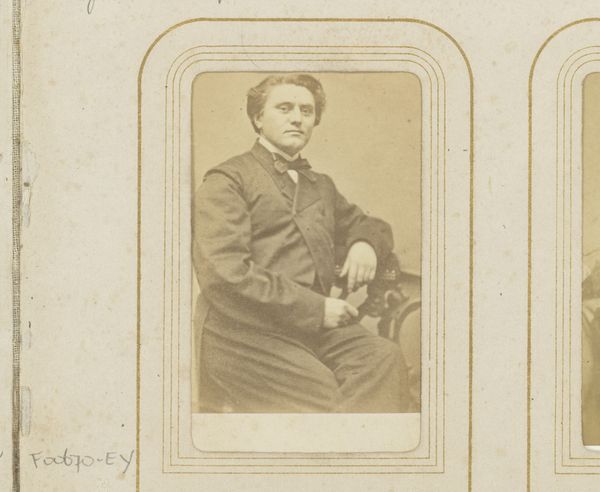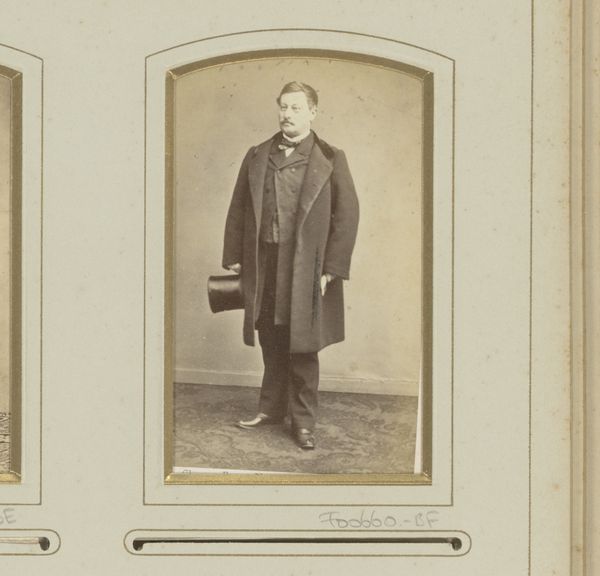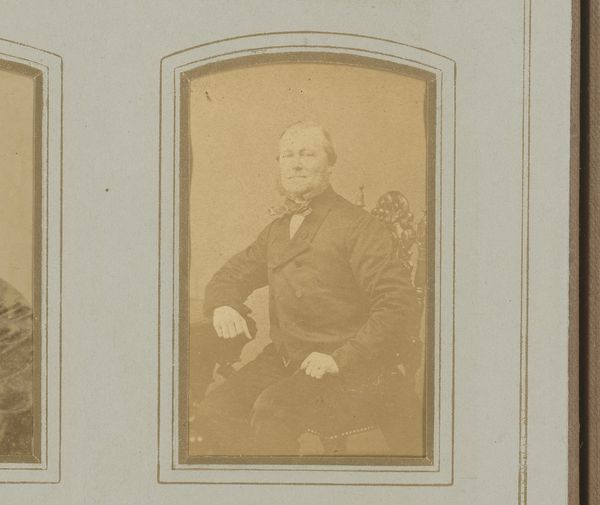
Dimensions: height 84 mm, width 51 mm
Copyright: Rijks Museum: Open Domain
Joseph Maes took this photograph of a man leaning on a cabinet sometime between 1838 and 1908. This is a carte-de-visite, an early form of photograph printed on paper and mounted on card. The carte-de-visite was revolutionary because it democratized portraiture. No longer was this privilege reserved for the wealthy, who could afford to commission painted portraits. The rise of photography was directly linked to industrialization and the growth of a middle class with disposable income. The process itself involved a complex choreography of labor. From the manufacture of the photographic plates and chemicals to the operation of the camera and the development of the print, many hands contributed to the final product. The subject, too, played a role, carefully constructing their image through clothing, pose, and props. The mass production of images like this one challenged traditional notions of artistic value. Yet, in their own way, these humble photographs offer a fascinating glimpse into the social and economic transformations of the 19th century. They remind us that even the simplest objects can tell complex stories about labor, class, and the changing nature of representation.
Comments
No comments
Be the first to comment and join the conversation on the ultimate creative platform.
